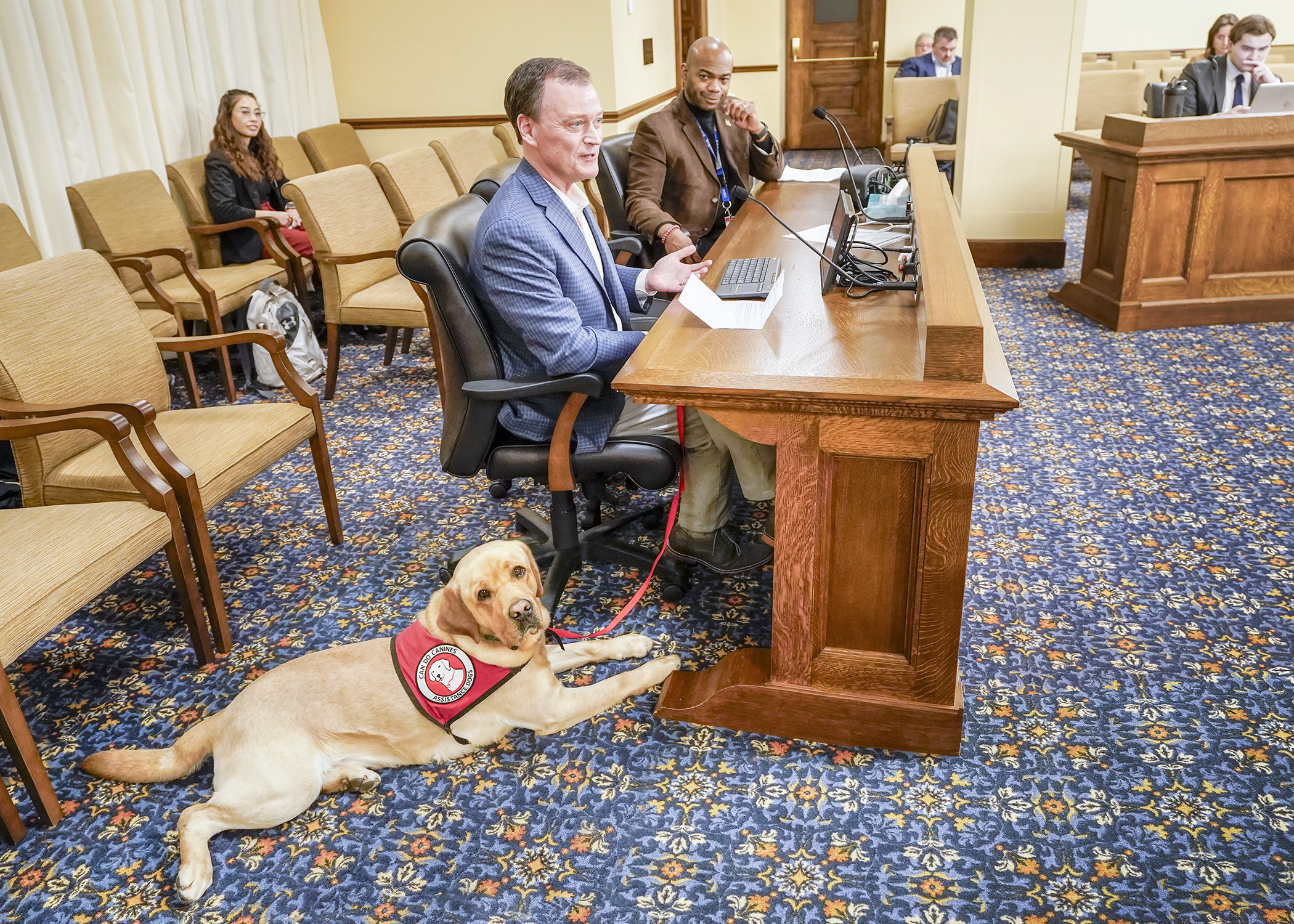Bill would unleash dog training volunteers from some HOA restrictions

Service dogs trained by New Hope-based Can Do Canines can turn on lights, open doors, pay retail clerks at tall counters and alert someone with diabetes when their blood sugar levels are low. But before they can help anyone, assistance dogs need training, which is often provided by volunteers.
Sitting with Tucker, a service dog in training, Can Do Canines Executive Director Jeff Johnson told members of the House Housing Finance and Policy Committee that some potential volunteers have been shut out because homeowners’ associations prohibit pets or put restrictions on breeds.
Current law prohibits housing discrimination against active assistance dogs. A bill approved by the housing committee Wednesday would extend that protection to assistance dogs in training.
“This will open up a pool of volunteers who have been shut out for a long time,” said Rep. Cedrick Frazier (DFL-New Hope) who sponsors HF688. The bill was sent to the House Human Services Finance and Policy Committee on a voice vote by the housing committee Wednesday.
Under the proposed legislation, someone training a service dog supervised by an accredited program could not be charged extra to have the dog but would be responsible for any damage the dog may cause.
Landlords and homeowner association boards could require a written statement from the organization supervising the training and the accommodation would end when training is complete, to prevent homeowners from falsely claiming a pet dog is an assistance dog in training.
It costs about $45,000 and takes about 2 to 2.5 years to raise, train and socialize assistance dogs, which are then turned over to the client free of charge, Johnson said. The dogs’ time with volunteer trainers can range from 2 days to 2 years.
Tucker is in his final stage of training and has a client in a power wheelchair he hasn’t met yet. Once with the client, Tucker will be able to help do laundry, pick up around the house and summon help in case of an emergency.
The dogs don’t help the clients, Johnson said. “They literally transform their lives.”
Related Articles
Search Session Daily
Advanced Search OptionsPriority Dailies
Stable budget outlook projects $3.7 billion surplus now, no deficit in next biennium
By Lisa Kaczke The projected surplus for Fiscal Years 2026-27 is now higher than it was in the November estimate, and no deficit is projected for the next biennium.
“Minnesota’s budge...
The projected surplus for Fiscal Years 2026-27 is now higher than it was in the November estimate, and no deficit is projected for the next biennium.
“Minnesota’s budge...
Legislative leaders set 2026 committee deadlines
By Lisa Kaczke Legislative leaders on Tuesday officially set the timeline for getting bills through the committee process during the upcoming 2026 session.
Here are the three deadlines for...
Legislative leaders on Tuesday officially set the timeline for getting bills through the committee process during the upcoming 2026 session.
Here are the three deadlines for...